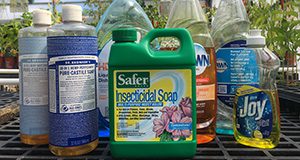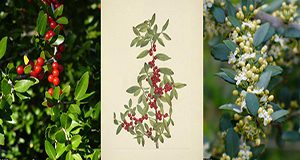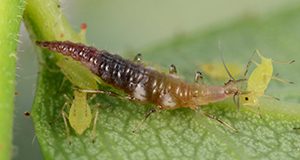Yaupon holly, Ilex vomitoria Aiton, is an evergreen woody plant native to the southeastern United States. The species is widely used as a landscape ornamental plant because it tolerates a wide range of soil and environmental conditions, is available in various forms, and attracts wildlife, especially native birds. Recently, there has been a resurgence of interest in cultivating the plant for the caffeinated beverages that can be made from its leaves. This 8-page fact sheet written by Matthew A. Borden, Mark A. Wilhelm, and Adam G. Dale and published by the UF/IFAS Entomology and Nematology Department provides a guide to managing yaupon holly and protecting it from pests. It will be useful to both commercial growers and homeowners interested in growing this beautiful and useful plant.
https://edis.ifas.ufl.edu/in1299
Tag: Matthew A. Borden
Managing Plant Pests with Soaps

Home gardeners and professionals frequently discuss the use of soap products to control plant pests. Limited and conflicting information on this topic has resulted in confusion and misuse of products. It is important to recognize that all soaps are not equal in safety or efficacy in plant-pest management. This 5-page fact sheet written by Matthew A. Borden and Adam G. Dale and published by the UF/IFAS Entomology and Nematology Department describes some of the different types of soaps and recommendations for proper, legal, and safe use of these products to manage pests.
http://edis.ifas.ufl.edu/in1248
Natural Products for Managing Landscape and Garden Pests in Florida
Pest control professionals and homeowners throughout Florida and the southeastern US are seeking effective options that are safer for people and the environment than some conventional synthetic pesticides. There is also rising interest in organic gardening, which relies on natural pesticides. This 13-page fact sheet describes natural products for use in residential landscapes and gardens. Written by Matthew A. Borden, Eileen A. Buss, Sydney G. Park Brown, and Adam G. Dale, and published by the UF/IFAS Department of Entomology and Nematology, revised September 2018.
http://edis.ifas.ufl.edu/in197

